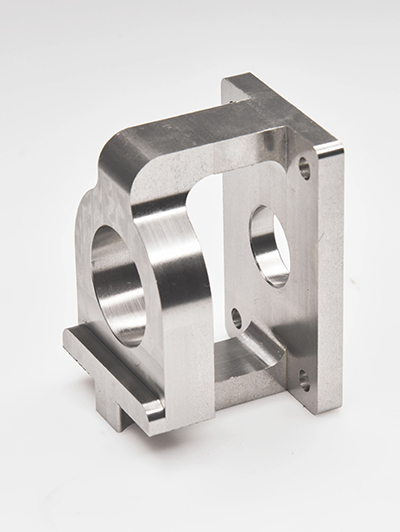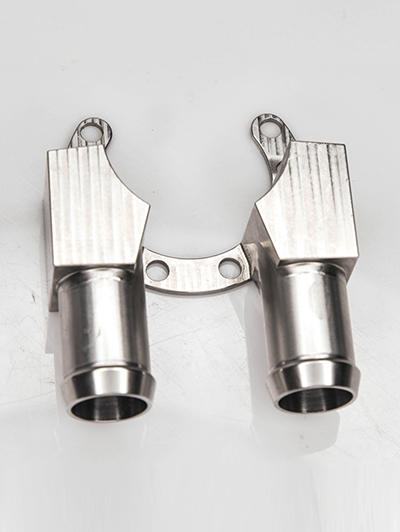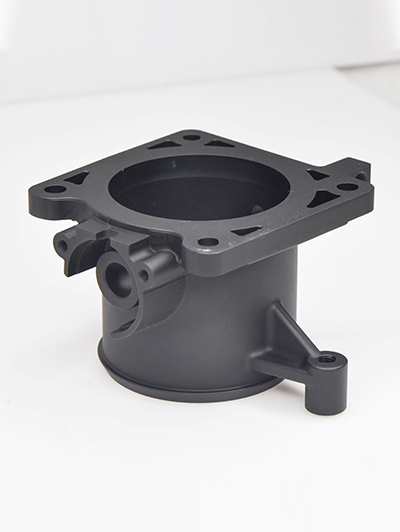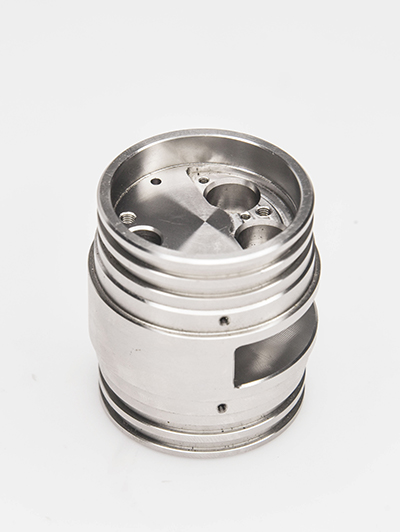Information
Aerospace-Grade Titanium Alloy Precision Machining_ Achieving ±0.002mm Tolerance for Jet Engine Blades
Aerospace-Grade Titanium Alloy Precision Machining: Achieving ±0.002mm Tolerance for Jet Engine Blades
In the ever-evolving aerospace industry, precision and performance are non-negotiable, especially when it comes to the manufacturing of critical components like jet engine blades. Aerospace-grade titanium alloys are renowned for their exceptional strength-to-weight ratio, corrosion resistance, and high-temperature endurance, making them the material of choice for components that operate under extreme conditions. However, to ensure the highest performance, these components must be manufactured with extreme precision—down to a tolerance of ±0.002mm. This is where precision machining comes into play, offering unparalleled accuracy in creating these critical components.
The Importance of Titanium Alloys in Aerospace Manufacturing
Titanium alloys have revolutionized aerospace engineering, providing materials that are both lightweight and incredibly strong. Jet engine blades, which experience extreme heat and pressure, must be crafted from materials capable of withstanding these harsh environments. Titanium alloys, particularly those in the aerospace-grade category, offer excellent resistance to fatigue, high temperatures, and corrosion, making them ideal for use in turbine engines.
The role of precision machining in manufacturing these titanium alloys cannot be overstated. In fact, achieving the required ±0.002mm tolerance for jet engine blades is essential to ensuring the safety and performance of the aircraft. Even the smallest deviation can lead to catastrophic failure, underscoring the critical nature of the machining process.
Achieving Precision with CNC Machining
CNC machining, particularly when combined with advanced techniques like multi-axis milling and precision turning, plays a pivotal role in achieving the exacting tolerances required for aerospace-grade titanium alloy components. For jet engine blades, where every millimeter matters, CNC machining offers the precision necessary to create these components to exact specifications.
CNC Lathe Machining – Using CNC lathe machining, we can achieve high-speed, high-precision turning processes, ensuring the titanium alloy components are accurately shaped for optimal performance.
CNC Milling – Multi-axis CNC milling allows for the complex geometries of jet engine blades to be produced with precision, even when working with titanium, a material known for its difficulty in machining.
Wire EDM (Electrical Discharge Machining) – For intricate and highly detailed cuts, wire EDM allows for precise removal of material, ensuring the components meet aerospace standards without compromising strength.
Through these advanced CNC machining techniques, we can consistently meet the ±0.002mm tolerance required for aerospace-grade titanium alloy components, ensuring that each part performs flawlessly in the most demanding environments.
Why Tolerance Matters in Aerospace Machining
In the world of aerospace manufacturing, tolerances are not merely a guideline but a critical factor in the safety and performance of the components. Jet engine blades are subjected to extreme conditions, including high-speed rotation, high pressure, and intense heat. Even the smallest deviation in the manufacturing process can result in operational inefficiencies, reduced performance, or, in the worst case, catastrophic failure.
By achieving a tolerance of ±0.002mm, manufacturers can ensure that each jet engine blade is perfectly balanced and capable of performing at its maximum potential. These tight tolerances allow for seamless integration of components within the engine, optimizing the overall performance and longevity of the aircraft.
Key Benefits of Precision Machining for Aerospace Components
Enhanced Performance – Achieving exacting tolerances ensures that aerospace components, such as jet engine blades, perform optimally, maintaining efficiency and safety.
Increased Durability – Precision machining ensures that the final product meets the highest quality standards, resulting in components that can withstand the rigorous demands of aerospace environments.
Improved Safety – Tight tolerances reduce the risk of mechanical failure, which is crucial in an industry where safety is paramount. Every jet engine blade must be manufactured with precision to ensure the aircraft's reliability.
Cost-Efficiency in the Long Run – While high-precision machining may require more advanced technology and skill, the long-term benefits far outweigh the initial investment. Precision parts last longer, reduce downtime, and improve overall operational efficiency.
Why Choose Us for Aerospace-Grade Titanium Alloy Machining?
At our state-of-the-art machining facility, we specialize in aerospace-grade titanium alloy precision machining. Our extensive experience and cutting-edge technology allow us to meet the rigorous demands of the aerospace industry. Whether you're looking for jet engine blades, turbine components, or other critical aerospace parts, our CNC machining processes ensure the highest levels of precision and quality.
Our team of skilled engineers and machinists is dedicated to achieving the highest standards of performance and safety. By utilizing the latest machining techniques, including CNC lathes, multi-axis CNC mills, and wire EDM, we guarantee that your aerospace components will be manufactured to perfection, with tolerances as tight as ±0.002mm.
Conclusion
In the aerospace industry, where safety and performance are of utmost importance, achieving precision in the machining of titanium alloy components is non-negotiable. With advanced CNC machining technologies, we can produce aerospace-grade titanium alloy parts with ±0.002mm tolerance, ensuring the highest level of performance and safety for critical components like jet engine blades. Choose us for your aerospace machining needs, and experience the precision and quality that make the difference in aerospace manufacturing.
If you're looking for reliable and precise aerospace-grade titanium alloy machining, contact us today to learn more about how we can support your needs.
Enhancing Efficiency in Aerospace Technologies
1. Implementing advanced automation and robotics: By utilizing automated systems and robotics in aerospace technologies, tasks can be performed more quickly and accurately, leading to increased efficiency. This includes automated systems for manufacturing, inspection, maintenance, and handling of materials.2. Adopting digital twin technology: Digital twin technology allows for real-time monitoring and simul...
Cutting-edge Machining of Unique Materials
Advancements in technology have allowed for the cutting-edge machining of unique materials that were previously difficult to work with. This has opened up new possibilities for manufacturing industries, allowing for the production of components and products that were once thought to be impossible.One such material that has benefited from cutting-edge machining techniques is carbon fiber. Carbon fiber is a l...
Enhancing Efficiency in Aerospace Technologies
1. Implementing advanced automation and robotics: By utilizing automated systems and robotics in aerospace technologies, tasks can be performed more quickly and accurately, leading to increased efficiency. This includes automated systems for manufacturing, inspection, maintenance, and handling of materials.2. Adopting digital twin technology: Digital twin technology allows for real-time monitoring and simul...
Cutting-edge Machining of Unique Materials
Advancements in technology have allowed for the cutting-edge machining of unique materials that were previously difficult to work with. This has opened up new possibilities for manufacturing industries, allowing for the production of components and products that were once thought to be impossible.One such material that has benefited from cutting-edge machining techniques is carbon fiber. Carbon fiber is a l...
Shape accuracy detection
In addition to dimensional accuracy, the shape accuracy of the parts cannot be ignored. Detect shape errors such as roundness, cylindricity, and flatness of parts using equipment such as roundness meters and contour meters. For example, when processing high-precision bearing rings, the accuracy of roundness and cylindricity directly affects the rotational accuracy and service life of the bearing.
Dimensional accuracy testing
Using advanced measuring tools and techniques, such as coordinate measuring instruments, optical imagers, etc., to accurately measure the dimensions of parts. For precision parts, dimensional tolerances are usually controlled at the micrometer level, so high-precision measuring equipment is required to ensure the accuracy of the test results. For example, when processing precision molds for mobile phone chi...
- +86 13603025252
-

WhatsApp
- info@jiujucnc.com





